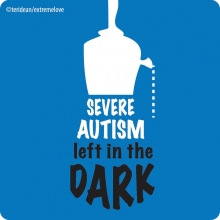Recent Posts
The last few months I couldn't ever stand to think about surgery. About a week before I was scheduled for the operation, my insurance rejected my authorization. They said it wasn't in my policy, which turns out they're right, however when my doctor spoke with them before I started my journey to meet all the requirements, they said I was covered. Needless to say I was heartbroken and looking at anything surgery related made me feel upset. Well, my sister sent me a link to a different surgeon who's cost is lower. Her and her husband are willing to finance me (They're angels on Earth). So I have an appointment on March 18th for a consultation with the new doctor. Im trying not to get my hopes up because I'm afraid I'll be disappointed again.
Fitchick, good for you for taking the hardest step ! Using Lent as motivation is brilliant ! Early on in the process, OA helped me quite a bit. Identifying that my disordered eating was a symptom of addiction has been powerful and has helped me be aware of potential transfer addictions. One of my biggest takeaways is that I can choose relapse or recovery... I am always in one of the two places. Welcome to recovery !
Age: 64; 5' 5"; High weight: 345; Start weight: 271 (01/05/15); Surgery weight: 218 (05/27/15); Pre-Op (-53); M 1 (-18); M 2 (-1.5); M 3 (-13.5 ); M 4 (-13); M 5 (- 8); M 6 (-12) M 7 (-5, Xmas); M 8 (- 9) Under surgeon's goal and REACHED HEALTHY BMI 12/07/15!! (Six months and one week.) AT GOAL month 8. Maintaining at goal range (139- 144) ~ four (4) years !!
There are lots of long term veterans here on OH who have dealt or are dealing with regain.
Staying plugged in and accountable has always been the key for me.
Catwoman 7 has given you great advice about joining the daily RNY thread.
Stick around. Be honest, accept critiques with grace (noone here wants you to fail) and you absolutely can do this
Proud Feminist, Atheist, LGBT friend, and Democratic Socialist

consider participating in the RNY menu group (the one over here in the VSG section seems to have died, but the RNY one is still active, and we do have VSG patients over there. We take everyone!). We post what we're planning to eat for the day every morning, and the group is very supportive. I'm sure I would weigh over 200 lbs again if it weren't for that group!
Thank you so much, Wombat. I'm strapping myself in![]()
Good luck to you, and a speedy recovery. This year will be a life-changer for you.
Posted this in the WLS Grad forum, but that part of the forum doesn't get much traffic.
I rarely post on here. Which is part of the problem. I am not a part of the bariatric community locally or online. My username is FitChickinOnederland. This is no longer true. My lowest weight was 157 (I thought I was a fat whale). Had a panniculectomy almost 2 years ago, finally had a flat stomach and STILL thought I was a land whale. Here I am on February 27, 2020 I sit at 217 pounds. I have gained a whopping 60 lbs. Feeling sick, I went to the immediate care center a few months ago, and test revealed that my sugar was elevated. I was probably 20 pounds lighter, so I can only imagine what it is now. Last night, my aunt noticed a dark spot on my neck, my mom noticed it too. A slight discoloration, just like when I was insulin resistant at 314 pounds. That was my breaking point. My rock bottom. I am not going back to Metformin, I am not going back to my blood pressure meds, bladder problems, joint issues. Not fitting in desk, restaurant booths, seat belts, shopping in plus size stores. I cannot. I will not. I refuse to go up another size.
I will be using the next 39 days of Lent to get back on track. Getting back to the bariatric basics. I just had my first meeting with my campus dietitian, and we're coming up with a game plan. I have been attending Over Eaters Anonymous meetings, and I just got a sponsor. I will also be looking into getting a personal trainer on campus, once my finances allow me to do so.
I am posting here as accountability. I need to immerse myself in the bariatric community. It's one thing to be a part of the weight loss community, but people who just lost weight, don't understand WLS struggles. I need WLS surgery buddies. If anyone wants to, please reach out to me. I have amazing friends, but they don't understand WLS. I need bariatric friends. Message me if you want to connect.
I know it's been a long journey. You'll be in my thoughts and wishing you a speedy recovery!
Hi buddy! I wish you so many blessings on your new journey. I didn't even think of trying sf gum. I can't believe we'll be there in a week! ![]()









